Learning Objectives
- Celebrities Find Safe Spaces on Podcasts
- Experience is the best teacher
- Having a conversation and listening
- How to end an interview


In the summer of 2025 a podcast conversation flowed freely for nearly two hours with Taylor Swift, the biggest pop star on the planet, when she did an extended podcast interview on the popular New Heights podcast.
The hit show hosted by her boyfriend, three-time Super Bowl winner Travis Kelce and his brother, set a new record for the show with nearly nine million views on YouTube in 12 hours. Her appearance set a Guinness World Record for the most concurrent views for a podcast on YouTube, reaching 1.3 million viewers at once and that put her on their icon list. Spotify reported a 2,500% increase in average streams and female listeners spiked 618%.

As Swifties know, the star doesn’t talk much to mainstream media but lets her music speak instead. But as other high-profile figures have figured out, podcasting can be a safer space, less confrontational, and with a longer format that allows guests to tell the story they want. That’s exactly what Swift did – talking about her new album, her love of baking sourdough bread, and more personal things like her father’s health and how her boyfriend used his podcast as a personal dating app.
An interview environment where you have some control over your own narrative is especially attractive when another VIP is the podcast host. It also helps explain the popularity of new hits such as Good Hang with Amy Poehler, or with established hosts like Dax Shepard of Armchair Expert or the trio of actors on Smartless. These longer-form podcasts hosted by public figures with no journalism training, have helped the famous guests become comfortable enough to talk about issues like their own mental health for an intimate conversation.
Fellow musician and Country star Jelly Roll has spent many hours on Joe Rogan’s podcast along with many other podcasts, helping to reframe his image from “a young, incarcerated father to Grammy-nominated musician,” according to Bloomberg’s Ashley Carmen.


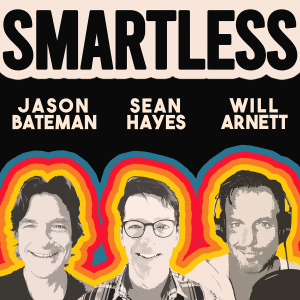
White House and other political leaders figured out before the last election which podcast shows to go on to advance their messaging and talk directly with the audience. A Joe Rogan podcast with then presidential candidate Donald Trump, had 12 million views in 12 hours on YouTube.
Of course, few of us will be a such a privileged position to seek out interviews with headliners, but that is not the norm. Instead, most chat podcasts will focus on everyday people who might do extraordinary things, have specialized knowledge, provoke energetic discussion, are funny, or very relatable. But those traits are key, so for your podcast find someone who brings something to the table and is not just an easy interview to get. Most hosts will also not be asking to do such a long recording time with their guests, and you can also make that a plus for persuading someone to come on your show.
Especially when you are new to podcast hosting/producing, it’s not the easiest thing to ask people for interviews but remember that all they can say is no, so there’s really nothing to lose. In fact, most people are flattered to be asked to share their knowledge or views, so the key is making the experience as pleasant as possible for the guest. Respect their time and coach them through how to record an interview if they are new to it.
Good interviewing is a learned skill that you get better at by doing it over and over.
Podcasting is a conversation — intimate because a voice is in your ear. You want to offer your audience solid information and entertainment, but want to ensure they’ll keep tuning in to the next episode.
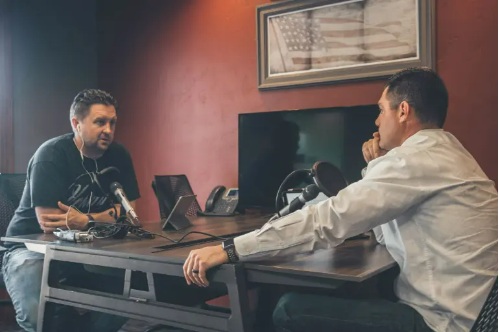
After doing more than 1,000 interviews for the ABC News podcast, Start Here, host Brad Mielke says he’s learned something new each day about the world and storytelling. He says his most valuable lesson is to “talk like a freaking person.”
Riverside.fm has their “ultimate list” of podcast interview questions.
12 Good Interview Podcasts
Doing remote interviews was a necessity during the pandemic but there’s a challenge in doing them because you can miss in-person cues. (See Ch. 4 for how-to-do remote phone interviews).
Still, many podcast and radio hosts have long been doing successful remote phone interviews. With 40-plus years of experience, Peabody-award-winning host Terry Gross rarely does face-to-face interviews from her studio in Philadelphia.
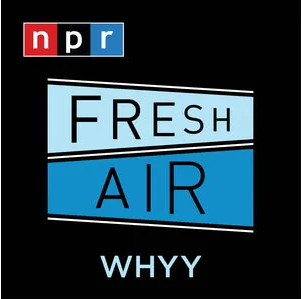
The host of NPR’s Fresh Air is highly acclaimed for her interviewing skills and says, “the advantage is I can take notes, I can look at notes, I can page through a book to get a quote that I want without feeling that I’m losing eye contact.” Her comments came from an event at the National Press Club Journalism Institute in Washington D.C.
Other tips on doing remote interviews can be found in this article by the International Journalists’ Network.

As a podcast host or producer, it’s your job to make the guest feel comfortable and safe.
Before the interview formally begins is the time to warm up the guest with some informal banter about the weather, current events or just asking, “What first got you so excited about this topic?”
You are trying to build a connection, help the guest relax and test good audio recording levels. If recording in person make sure you have bottled water for your guests, as taping an interview can make people a little nervous so they get dehydrated.
Connecting with your guest is a lot easier if you’re curious about them and what they do, so research and preparation are key. It shows respect for the guest and the audience when the host prepares questions based on research and thought about what areas are important and interesting to discuss.

Among the most experienced interviewers questions can sound like they are free-wheeling and spontaneous but most often they are pre-planned so the podcast is an engaging show. For new hosts, in particular, having several prepared questions can ease your jitters and guide the conversation more smoothly.
Some hosts deliberately avoid prepared questions because they think not having them helps them ask the kinds of questions the audience would have posed. But until you’ve had at least a few years of experience, some preparation should be done.
You never tell a guest what to say — but you can advise them how to do a good interview.
Ask the guest to think about lively or remarkable stories or anecdotes they can tell. For example, if you were interviewing a national news correspondent about their career, give a heads-up that you want to know about the most memorable story they’ve covered.

Or if your guest is an athlete with great ambitions, ask them to recall their most inspiring sports moment. You may get a compelling story about a young person determined to go for the gold after watching Lindsey Vonn become the first American woman to win Olympic gold for downhill skiing.
A good story is what you’re after and personal stories make the interview memorable. When you’ve given some advance time for the guest to reflect, you often get more candid and powerful answers.
Professional journalists, however, usually don’t send specific questions in advance of an interview, but they should outline the general topics to be discussed.
There’s nothing more flattering than having someone listen to what you’re saying. But that can be hard when so many things are going on at the same time you’re taping a conversation.
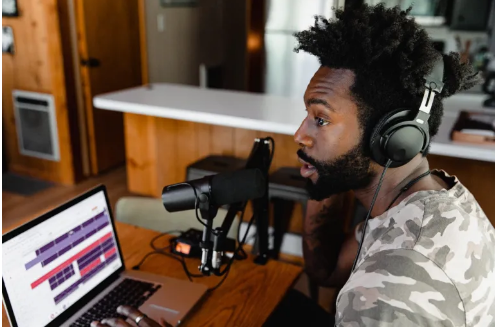
Show your guest how much you’re listening by picking up on something they’ve said, making an observation or asking a follow-up question. It makes the give-and-take of a conversation much more interesting, but also requires some flexibility on your part. You might need to toss aside some prepared questions.
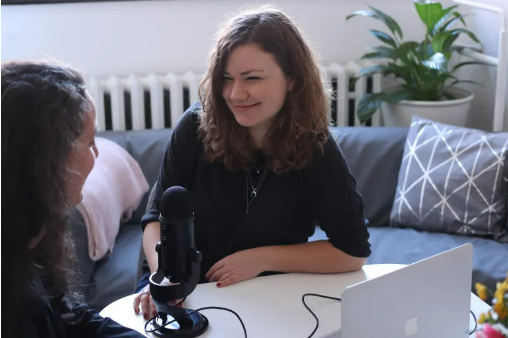
A podcast is a conversation, so you want to ask questions that solicit answers with some thought instead of a simple yes-or-no answer.
Some good ways to do this involve questions like: “So, how did this happen?” or “Can you explain?” Instead of asking: “Are you happy?” ask: “What kinds of things bring you the greatest joy?”
Remember that people like to listen to stories; open-ended questions gather information to do just that.
In interviews, certain questions need to be asked for the story to become clear. But once you have that information, it can be enlightening and fun to ask the unexpected question or the one that has no right or wrong answer.
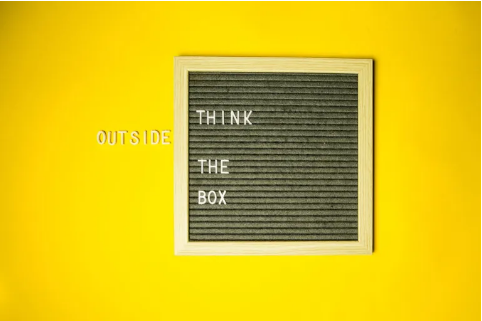
The host of The Axe Files podcast, political analyst David Axelrod, often opens conversations with public figures by asking them to talk about where they come from and what growing up was like. The late James Lipton regularly used similar techniques when talking with entertainers as host of Inside the Actor’s Studio.
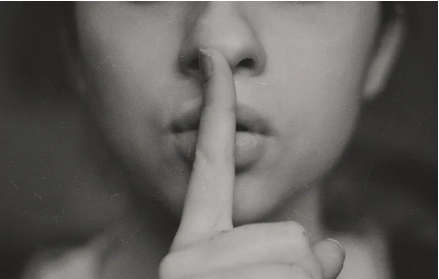
Interviewers can be afraid to pause after a guest has answered a question and want immediately to jump in with more questions to avoid an awkward pause.
However, if you let the answer settle for a few seconds, a guest will often add additional thoughts that are more reflective. “The other person will either expand on what he’s already said or he’ll go in a different direction. Either way, he’s expanding his response, and you get a clear view into his head and heart,” said the late journalist Jim Lehrer.
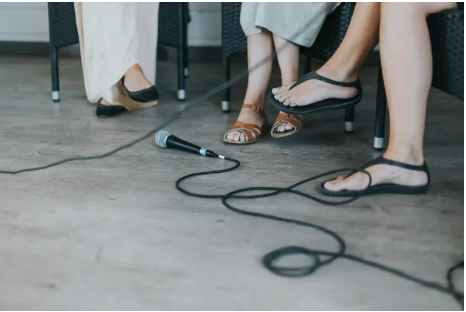
Sometimes a guest interview starts to ramble and isn’t particularly interesting. That’s when a so-called ‘conversation turner’ can work wonders. This is a technique to mentally hit the “refresh” button and restore the flow of conversation.
For example, you could say, “Hey, let’s go back to when you got laid off from your first reporting job — did that shake your confidence?” It’s up to the interviewer to take charge, interrupt, clarify and get back on topic.
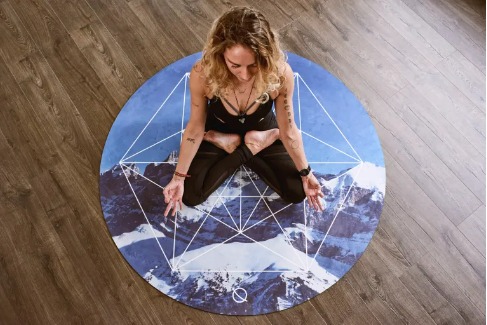
When seeing a guest in person or on camera, pay attention to nonverbal cues during the conversation – what brings a smile, a wince, or discomfort. When sensitive issues are discussed, there might be sweating or foot tapping. Depending on the topic, you might want to ask more questions or back away from the topic.
A clever technique to make your podcast stand out might be to create a so-called ‘signature question’ that you ask every guest, especially if it relates to your podcast niche. For example, the host of a cooking show might ask the guest to name someone who inspired them in their love of cooking, while the host of a book podcast might ask a guest for summer reading recommendations.
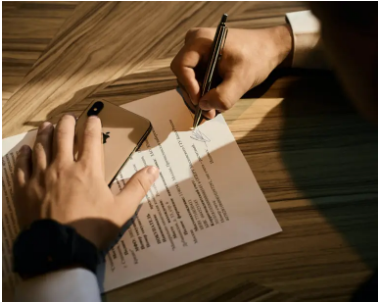
The podcast, Finding Our Way, has a signature question, used with all guests each week.
A standard practice by journalists ending an interview is to ask: “Is there anything else you would like to add?” It allows the guest to conclude with some reflection.
A bad ending is when you just stop talking — that’s not an ending but just the end of the conversation. Instead, create the opportunity for a strong ending, and make it memorable. We all enjoy a surprise or unusual ending to a great book or movie and podcasts can do the same.

Even more important is to thank your guests both on-air and in some personal way for taking their time to come to speak on your podcast.
At Podcast Movement, Steve Pratt co-presented the thank you strategy for one of Facebook’s original podcasts. Each guest got a personal note and promotional swag that includes a personalized poster, buttons, shirts, stickers, and pins.
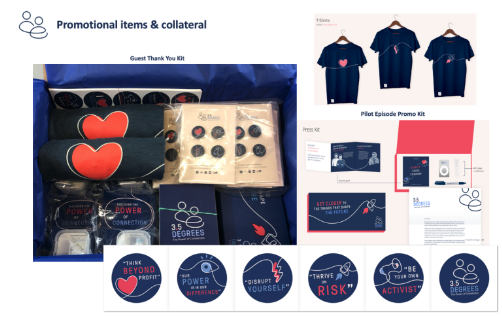
While most of us don’t have the kind of budget to pay for such gifts, we can and should show appreciation with a personal thank you. That’s also a good time to make sure you send them an easy way to listen to and share the podcast.
There is usually a time lag of several weeks between recording interviews and the completed podcast.
When your show is ready send an email to guests to ask for their help in sharing it with their networks and friends. Make it easy for them by sending links to the podcast, along with social media posts and audiograms you may have created.
Hi (Guest)
I’m delighted to let you know that (episode title) has been published and will be available (when).
I would really appreciate if you could share it with your network of contacts and friends to get the word out about the show. I also have social media links and an audiogram available.
I can’t thank you enough for coming on my show and sharing your wonderful insights, it was a pleasure!
(your name)
You can also use email to try and book yourself on podcasts. Make your pitch polite, short, and offer specific ideas on topics you could cover that would fit into the theme of a particular podcast – in other words, it should be about what you would bring to the audience rather than what it would do for you and your show. Include a press kit.
See Ch. 9 for much more on promotion.